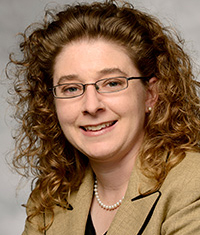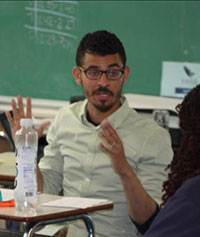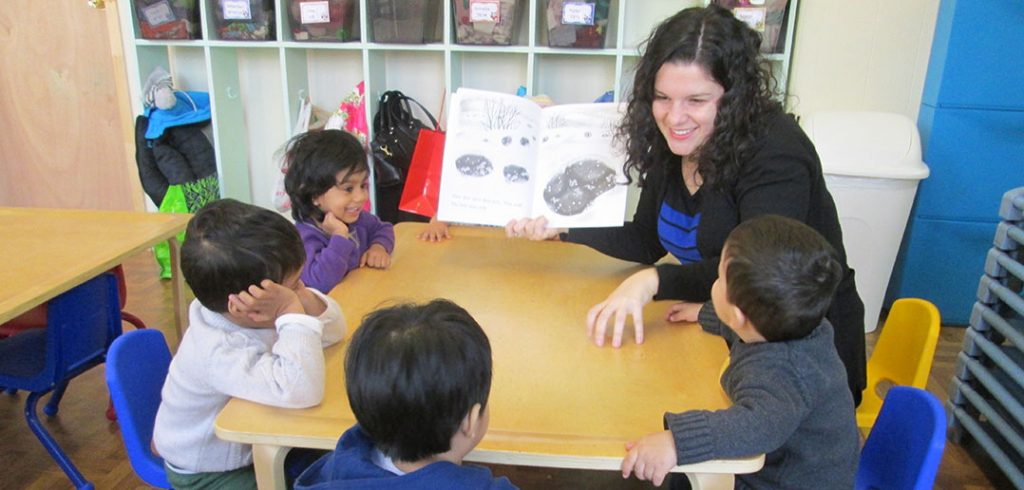FORDHAM magazine checked in with some alumni of the University’s Graduate School of Education—professionals who work with students ranging in age from preschool to high school—to ask them for some guidance. Here’s what they had to say.

Be involved. In order to help your child thrive in the classroom, it’s important to be involved from the get-go. Angela Kang, Ph.D., GSE ’09, runs the mental health clinic at P.S. 8 in the Bronx—part of Montefiore’s School Health Program. Clinic staff evaluate students and see them for behavioral issues, mood disorders, and other concerns.
“We do a lot of family work. The parents have to be involved,” she says. “The more information a parent can give me, even anecdotally, that’s really helpful in terms of formulating what’s going on.” Kang likes to see prior report cards and any other evaluations a child may have received.
Talking to your child, Kang says, is crucial. “Sometimes parents assume that a child will tell them when something is wrong,” but this is not always the case. “And things that go undetected for a while show up as other problematic behaviors.”
Develop trust in your school. A critical component of parental involvement, says Shirly Ulfan, GSE ’14, is getting to know and appreciate the learning environment at your child’s school. Ulfan is the founder of Aleph Bet Academy, a small preschool in Briarwood, Queens, that opened last year.
“It’s always astonishing to me how different parents are in their concerns,” she says. “Some parents want to be sure their child is really clean all the time. Some are obsessed with what their child eats.” Parents, especially those with little ones, need to know that everything will not be “the way it is at your house.”
“I always tell parents that everything that happens in our school happens with forethought.” While she welcomes parents’ involvement, she says it’s crucial that they “begin with the basic idea that I trust the teacher and the school, and that whatever comes up will be handled correctly.”
This applies to discipline as well. “Every parent should ask ahead of time how a school deals with conflict and discipline,” says Ulfan, and be sure that they are comfortable with the school’s approach.
Be collaborative. Parents and teachers share the same goal—you both want what’s best for your child. Approaching discussions in a collaborative fashion will likely yield the best results for everyone.

Noelle Beale, Ph.D., FCRH ’97, GSE ’12, is regional superintendent for Catholic Schools of Central Westchester, responsible for 25 schools. She’s also served as a principal and a classroom teacher. “It’s important for the parent to go into the conversation as a partner, and to really work with the teacher on strengths and weaknesses.”
Collaboration should also involve the student, says Beale, who is an adjunct professor at the Graduate School of Education. When schedules permit, she suggests having the student present with the teacher during discussions, to “really walk through what the challenges were.” Or, if the situation is more serious, such as a significant behavioral issue or possible academic failure, parents and teachers can talk alone “to come with strategies ahead of time,” she says, “then sit down with the student and talk about expectations.”
Madison Payton, GSE ’13, teaches English at the Eagle Academy for Young Men II in Brownsville, Brooklyn, where he founded a writing center. He says in order for collaboration to happen comfortably, parents should take the time to “understand who we are as educators.”
As a writing teacher, he puts less of an emphasis on grades than some teachers do. This can be confusing to parents of his students, many of whom are Caribbean and come from a more rigid education system. They’ll say, “How did this essay change three times?” But for him, the revision process is more important. He says he tells students, “This is your place to make lots of mistakes. You can do that here because I love you.” So it’s key, he says, that parents ask teachers about their teaching philosophy in the beginning of the year.

Be realistic. What parent doesn’t think their child is brilliant? But Beale cautions that your child may not have all the strengths you want them to have. “As a parent myself, I really try to go in realistically and say, ‘My child may have challenges. How can I best support them at home, and what can I do to best support the teacher?’”
By the same token, she says, teachers are not perfect either. “Education is changing. Look at the Common Core. Teachers themselves are evolving with their knowledge, because there are new things that they’re teaching.”
In his school in a tough Brooklyn neighborhood, Payton sees parents—often single moms—comparing their kids to themselves at that age. They might say, “Well, I had less, and I was able to do it.” But times have changed, he says, and every child develops differently. “Remove yourself from the equation and try to figure out why the child is making certain decisions.”
Trust your instincts. As much as it’s critical to develop trust in your child’s school and teachers, Ulfan says, it’s also important to remember that you know your child better than anyone else in the world.
“Parents have very strong instincts,” she says. “Often professionals will fail a child in a way where a parent would not.” Ulfan works with parents who are learning their children have special needs, and says it will be critical that they fight to receive all the evaluations and services their child requires. “If you have concerns and they’re not going away—in whatever setting—you really have to fight. Stomp your foot on the floor and pound your fist on the table and be the loudest, squeakiest wheel you can be.”

